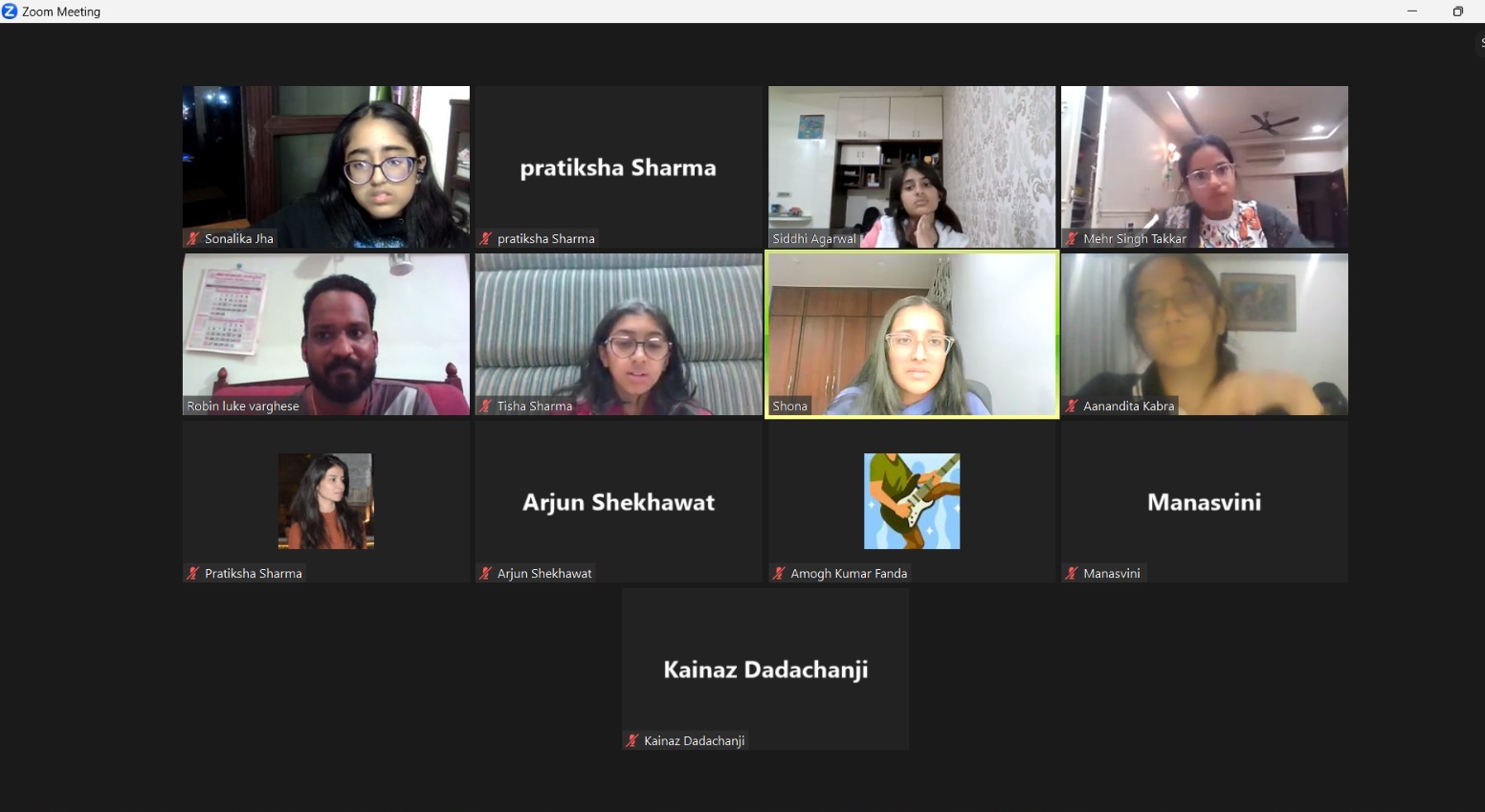
- 18 December, 2023
The Central Problems in Philosophy Workshops
“It's a skill! I think philosophy is a skill because it helps in problem solving,” contended Shona—a student of grade ten, in a workshop on Central Problems in Philosophy with Dr. Robin Luke Varghese, an academic philosopher and researcher.
Another student shared, “philosophy sharpens our thought processes” when asked about the impact of philosophy on the mind. While Dr. Varghese emphasized, “we are capable of thinking,” another student answered that it is through philosophy that we are able to move closer to the truth and gain knowledge. Debates in philosophy build the base-structure of philosophy. The essence of debates, Mr. Varghese explained, lies in the subtle training of the mind. Thus, he conveyed the purpose of this workshop.
The workshop delved deep into the conceptual understanding of ‘beauty’. What is beauty? If objects and ideas, both can be beautiful, then who decides the standard or norm of beauty? The participants’ arguments highlighted the perspective that acknowledges dominant ideologies and subjectivities, proposing that beauty and other such concepts are subjective, thus everyone perceives them differently. “Silence might be perceived as beautiful”, another student commented. Siddhi suggested that if one puts their mind to something just enough, then anything might seem beautiful. Dr. Varghese contrasted concepts of ‘beauty’ and ‘ugliness’ using the example of a waterfall. Was the waterfall beautiful before you encountered it, or is it beautiful-in-itself? By subtly introducing Plato’s theory of forms without any jargon, the children had their presuppositions shaken as they discovered newer ways of thinking for the first time.
After having dealt with other philosophical problems like the problem of evil, death, afterlife, and identity, the two-day workshop concluded with students writing short essays on the problem of their choice. The essays can be found in the articles section:
1. Do you find it Beautiful?
2. Is it the same Ship?
3. When do we stop existing?
4. Can Evil co-exist with God?


